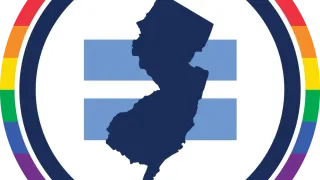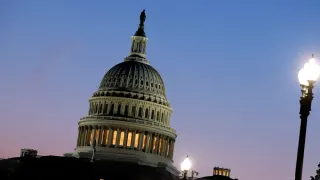January 29, 2019
Sundance: Anton Yelchin Celebrated in Intimate Documentary
Lindsey Bahr READ TIME: 2 MIN.
Anton Yelchin died in a freak accident at age 27, but a new documentary seeks to put the focus back on the actor's extraordinary life.
"Love, Antosha," which is seeking theatrical distribution, premiered Monday at the Sundance Film Festival in Park City, Utah, to tears and applause. His parents, Viktor Yelchin and Irina Korina, the driving force behind the documentary, were there as well.
The film is a heartfelt and unusually revealing tribute to the creative force of nature that was Yelchin. It is told through home videos, archival footage, personal letters and interviews by those who knew him, from his "Star Trek" companions Chris Pine, John Cho and J.J. Abrams, to Jennifer Lawrence, Martin Landau and Kristen Stewart, who said that he, "Kind of, like, broke my heart" at 14. It's a complex portrait of an artist, who liked to take provocative photographs at sex clubs in the Valley and was also, unbeknownst even to most of his closest friends, managing cystic fibrosis.
After he died in 2016, his parents started the process of gathering materials and even conducting interviews with people who knew him when they'd be in town. By the time director Garret Price came aboard to start the process of making a film, he said "50 percent of it was already there."
Price decided that he'd use Yelchin's letters as a framing device to tell a coming-of-age story through his eyes. Nicholas Cage does the readings of his letters.
"The challenge of a story like this is it ultimately ends in tragedy but I didn't want to make a tragic story," Price said. "I wanted to make an inspiring story."
An editor by trade, Price never met Yelchin, or directed a movie before. "Love, Antosha" producer Drake Doremus, who was very close to Yelchin and directed him in "Like, Crazy," thought a more objective eye would be good for the film.
By no means is his story told through G-rated, rose-colored glasses, either. The film delves into his creative and professional anxieties as much as it does celebrate his talent.
"Credit to his parents, they were very upfront and said we want to give you complete autonomy to tell the story. There was no pressure to deify Anton for an hour and a half," Price said. "I'd done documentaries where estates have been involved and challenges present themselves to showing the subject in the best light. But this humanizes him and makes him relatable."
Price said Yelchin was getting ready to make his cystic fibrosis diagnosis public. He'd hid it for so long because he "didn't want people to feel sorry for him." But he'd realized that perhaps letting people know that he was living with the disease could actually help others.
The film was a rush to get done, but Price said they were all motivated to keep Yelchin in people's minds.
"It was something we wanted to get done quickly because the world we live in moves so quickly," Price said. "We just don't want him to ever be forgotten."






